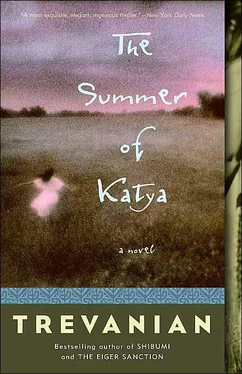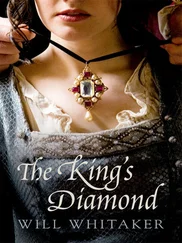Rodney Whitaker - The Summer of Katya
Здесь есть возможность читать онлайн «Rodney Whitaker - The Summer of Katya» весь текст электронной книги совершенно бесплатно (целиком полную версию без сокращений). В некоторых случаях можно слушать аудио, скачать через торрент в формате fb2 и присутствует краткое содержание. Город: New York, ISBN: , Издательство: Crown Publishing Group, Жанр: Триллер, Современные любовные романы, на английском языке. Описание произведения, (предисловие) а так же отзывы посетителей доступны на портале библиотеки ЛибКат.
- Название:The Summer of Katya
- Автор:
- Издательство:Crown Publishing Group
- Жанр:
- Год:неизвестен
- Город:New York
- ISBN:1400098041
- Рейтинг книги:4 / 5. Голосов: 1
-
Избранное:Добавить в избранное
- Отзывы:
-
Ваша оценка:
- 80
- 1
- 2
- 3
- 4
- 5
The Summer of Katya: краткое содержание, описание и аннотация
Предлагаем к чтению аннотацию, описание, краткое содержание или предисловие (зависит от того, что написал сам автор книги «The Summer of Katya»). Если вы не нашли необходимую информацию о книге — напишите в комментариях, мы постараемся отыскать её.
The Summer of Katya — читать онлайн бесплатно полную книгу (весь текст) целиком
Ниже представлен текст книги, разбитый по страницам. Система сохранения места последней прочитанной страницы, позволяет с удобством читать онлайн бесплатно книгу «The Summer of Katya», без необходимости каждый раз заново искать на чём Вы остановились. Поставьте закладку, и сможете в любой момент перейти на страницу, на которой закончили чтение.
Интервал:
Закладка:
I drank down my second glass then jokingly asked if any of them had owned a sheepdog bred from a bitch owned by my uncle’s cousin’s son, and therefore felt the need to offer a toast. The oldest of the men knew my meaning exactly, and his eyes glittered with conniving humor as he said, “No offense to your family, young man, but we must face the fact that your uncle’s cousin’s son’s dogs were not of the best bloodline; therefore toasting them with a round might be a greedy waste of Izarra.”
I grinned back at him and nodded, taking delight in the tortuous subtleties of the Basque mind. What I had really said was: Don’t take excessive advantage of this generous friend of mine. And what the old man had really said was: Who would do such a thing?
How can such a language be translated?
When I returned to the square I saw Katya dancing a slow passo with the young jai alai player she had danced with before. As they passed by, the young man smiled and nodded to me in a way that said he understood this woman to be mine and was not going to contest the point. I smiled and gestured with my thumb to my mouth, inviting him to take a glass with me later. He nodded again and they danced away. Perhaps it was the Izarra, but I felt closer to and fonder of my Basque heritage at that moment than I had for years, and I had a twinge of shame for having worked so hard to lose my accent and disavow my background to avoid ridicule at university. Of course, I could not have known that eventually I would return from the war to pass my entire life as that village’s doctor.
As I drifted around the rim of onlookers, I saw Paul dancing with an attractive Basque girl who was faintly familiar to me, but it didn’t dawn on me for several minutes that she was the one who had played the role of the Drowned Virgin. I had a momentary worry about Paul’s taking the girl who was considered the village belle, as I had no appetite for ending up back to back with Paul in a melee of whistling belt buckles. But he had the good sense to lead her back to a group of her friends after the dance, and to treat her with a distant and comically overdone politeness that earned him an invitation to join them in a round.
During the next hour, I danced several times with Katya; and once with somebody’s grandmother; and once with somebody’s spinster aunt. And Katya danced with an adolescent boy who had been pushed towards her, blushing and stammering, by his friends; and she danced with an old man somewhat asea with wine, who grinned and waved at all his friends to make sure they noticed his bold conquest; and once again with the young jai alai player after the three of us had taken a glass of wine together. Paul did not dance again, but he was taken on a triumphant txikiteo of the bars by a knot of young men who insisted that he must have some Basque blood in him, to be able to fight so well. When next I saw him he had lost his cravat somewhere.
After one last Kax Karot, the musicians descended from their platform, and the fкte was over, save for the early morning omelette the young men would share at a nearby farmhouse. Katya and I found Paul, and the three of us went to the bar where their father had been ensconced all evening long. Just as we entered, the old men began to sing “Agur Jaunak,” the final song of any Basque fкte, their strained falsetto voices trembling with emotion and age. I joined in the plaintive melody, surprised and a bit embarrassed to find tears standing in my eyes.
Monsieur Treville had not survived the Izarra quite as well as I had thought, as we discovered walking across the square towards the bridge. Twice he stumbled and complained about the uneven cobblestones that made it hard for a person to keep his balance.
“What did your cronies have to say about Paul’s exhibition?” Katya asked, putting her arm around her father as though in affection, but really to steady him.
“What exhibition was that?” Monsieur Treville asked with a confused frown.
“Never mind,” Paul said. And he pretended to stumble. “Damn these cobblestones!”
Just as we crossed the bridge there came a cri basque from the square behind us followed by shouts and sounds of scuffling.
“Ah,” I said. “I had begun to fear the fкte would have to do without one.”
“Without one what?” Monsieur Treville asked.
“Without its bagarre. It’s a time-honored tradition.”
Monsieur Treville stopped in his track. “A tradition? Let’s go back and join in!”
“Oh, let’s not, Papa,” Paul said. “We’ve had enough of rural customs and traditions for one night.”
“Oh, perhaps so… perhaps so.” Monsieur Treville’s voice was heavy with sudden fatigue.
But he regained his spirits as we drove away down the dirt road that seemed to glow in the moonlight. I had taken my turn at the reins, and he sat in back with Paul, regaling us with the curious and fascinating bits of folklore he had learned until, almost in midthought, he stopped speaking. I turned to discover that he had fallen asleep on his son’s shoulder. Paul smiled and shook his head as he adjusted his father’s coat to keep out the night air.
During the two hours of the slow ride back to Etcheverria no one spoke; the only sound was the clop of the horse’s hooves in the dust, and the rattle of the trap as it swayed over the uneven road like a small boat wending down a stream of moonlight bordered by dark silhouettes of river grasses. Katya did not rest against my shoulder, though I offered it. She seemed pleasantly alone and isolated in wisps of daydream and memory. Twice she softly hummed snatches of the melodies she had danced to, both times the tune fading away as some vagrant reverie carried her thoughts adrift.
It was not until I had turned into the poplar lane leading up to Etcheverria that Monsieur Treville awoke with a little start and asked where we were.
“We’re home, Papa,” Paul said.
“Home? Really? We’ve come home?” There was bewildered excitement in his voice, before he realized that “home” meant the house in the Basque country. “Oh, I see,” he said in a rather deflated tone.
I let them off at the door and drove around to the stable to unharness and attend to the horse. A quarter of an hour passed before I returned, by which time Monsieur Treville had gone up to his room, and Paul and Katya were sitting in the salon with only one lamp lit and no fire in the hearth.
“Papa wished you a good night,” Paul said. “And he asked me to thank you for bringing us to the fкte.”
“Yes,” Katya added, “I don’t remember when he enjoyed himself so much. It was good of you, Jean-Marc.” The words had the vacant sound of social rote, and she appeared worried and distant.
Paul rose. “Well, I think I shall go up myself.” He stifled a yawn. “I do hope the bad wine I’ve drunk will counteract any beneficial effects of all this vulgar exercise. Don’t keep her up too late, Montjean.” He laid his hand on Katya’s shoulder. “I’ve told Katya that you know all about Papa and his… problem. And I’ve asked her to listen to what you have to say before making up her mind whether she wants to go with us or stay.”
Katya’s eyes were lowered and her bodily attitude seemed heavy and burdened.
Paul held out his left hand to me. “I suppose I shan’t be seeing you again, Montjean. I would like to say that meeting you has been an undiluted pleasure, but you know me: helpless slave to the truth.” With a little wave he disappeared up the staircase.
That was the last time I saw Paul alive.
I turned to Katya, who continued to avert her eyes. All the energy and joy of life she had exhibited at the fкte seemed drained from her. After a moment of silence, I began, “Katya—”
Читать дальшеИнтервал:
Закладка:
Похожие книги на «The Summer of Katya»
Представляем Вашему вниманию похожие книги на «The Summer of Katya» списком для выбора. Мы отобрали схожую по названию и смыслу литературу в надежде предоставить читателям больше вариантов отыскать новые, интересные, ещё непрочитанные произведения.
Обсуждение, отзывы о книге «The Summer of Katya» и просто собственные мнения читателей. Оставьте ваши комментарии, напишите, что Вы думаете о произведении, его смысле или главных героях. Укажите что конкретно понравилось, а что нет, и почему Вы так считаете.












